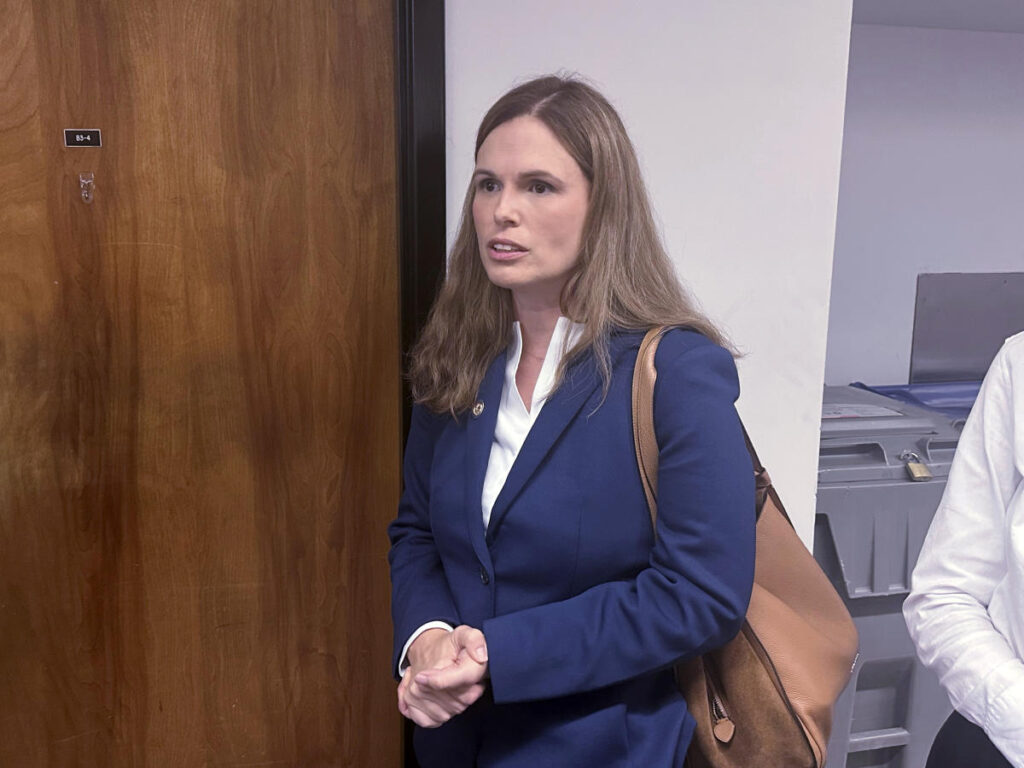In a tightly contested election for the North Carolina Supreme Court, Jefferson Griffin, a Republican Court of Appeals judge, has formally requested intervention from the Supreme Court to prevent the counting of over 60,000 ballots, which he claims were not lawfully cast. Griffin is competing against Democratic Associate Justice Allison Riggs, who currently leads by a slim margin of 734 votes amidst claims of ballot irregularities following the November 5 election, where more than 5.5 million votes were cast. With the race still not officially called by the Associated Press, Griffin’s legal maneuver emphasizes the ongoing dispute over ballot legitimacy, signifying a broader conflict within North Carolina’s voting landscape.
The North Carolina State Board of Elections recently dismissed Griffin’s protests regarding these ballots, and typically a trailing candidate dissatisfied with such a decision would appeal to Wake County Superior Court. Riggs has publicly declared victory, while her campaign has urged Griffin to concede. However, rather than following the conventional route, Griffin’s team has sought a more immediate remedy by approaching the state Supreme Court directly. They hope to secure a ruling by Monday that would not only halt the certification of Riggs’ win but also suspend the deadline for filing an appeal to lower courts, signaling Griffin’s urgency in the matter.
Griffin’s request specifically targets three categories of challenged ballots: those cast by individuals lacking proper identification, such as driver’s licenses or complete Social Security numbers; overseas voters with tenuous ties to North Carolina; and military or overseas voters who submitted ballots without accompanying photo identification. This legal challenge has significant implications, as it could alter the outcome of the election depending on whether the Supreme Court sides with Griffin’s assertions or supports Riggs’ position that the ballots should be counted.
The State Board of Elections, comprised of three Democrats and two Republicans, dismissed Griffin’s protests largely along partisan lines, asserting that there was no reasonable evidence to support claims of election law violations or irregularities. The board’s chair emphasized the fundamental principle of safeguarding every legitimate vote in a democratic system, arguing against discarding votes in the absence of substantial proof of wrongdoing. In stark contrast, Griffin’s legal argument hinges on an interpretation of historical election laws that, according to his attorneys, obligates the board to discount votes cast in violation of these laws.
As the political landscape in North Carolina remains polarized, the outcome of this election contest could have wider ramifications for the state’s governance and future electoral processes. The dismissed protests are not an isolated incident, as they also include challenges from Republican candidates in General Assembly races, some of whom are also trailing. Should these candidates exhaust their protest options, they could be left with no legal recourse, necessitating a reliance on the legislature to determine election outcomes—a contingency that underlines the complex interplay between judicial actions and legislative authority within North Carolina’s political framework.
Concurrently, the North Carolina Democratic Party has preemptively filed a lawsuit in federal court, seeking to prevent the dismissal of the contested ballots, citing potential violations of the U.S. Constitution and election laws. This suit underscores the heightened tensions surrounding this election cycle, raising concerns within the Democratic camp about possible biases from the state Supreme Court, which has been an arena of partisan conflict over issues like redistricting and voting rights. The outcomes of these legal battles will undoubtedly shape not only the current races but also the future electoral landscape in North Carolina, highlighting the critical nexus between law and politics in the state.

